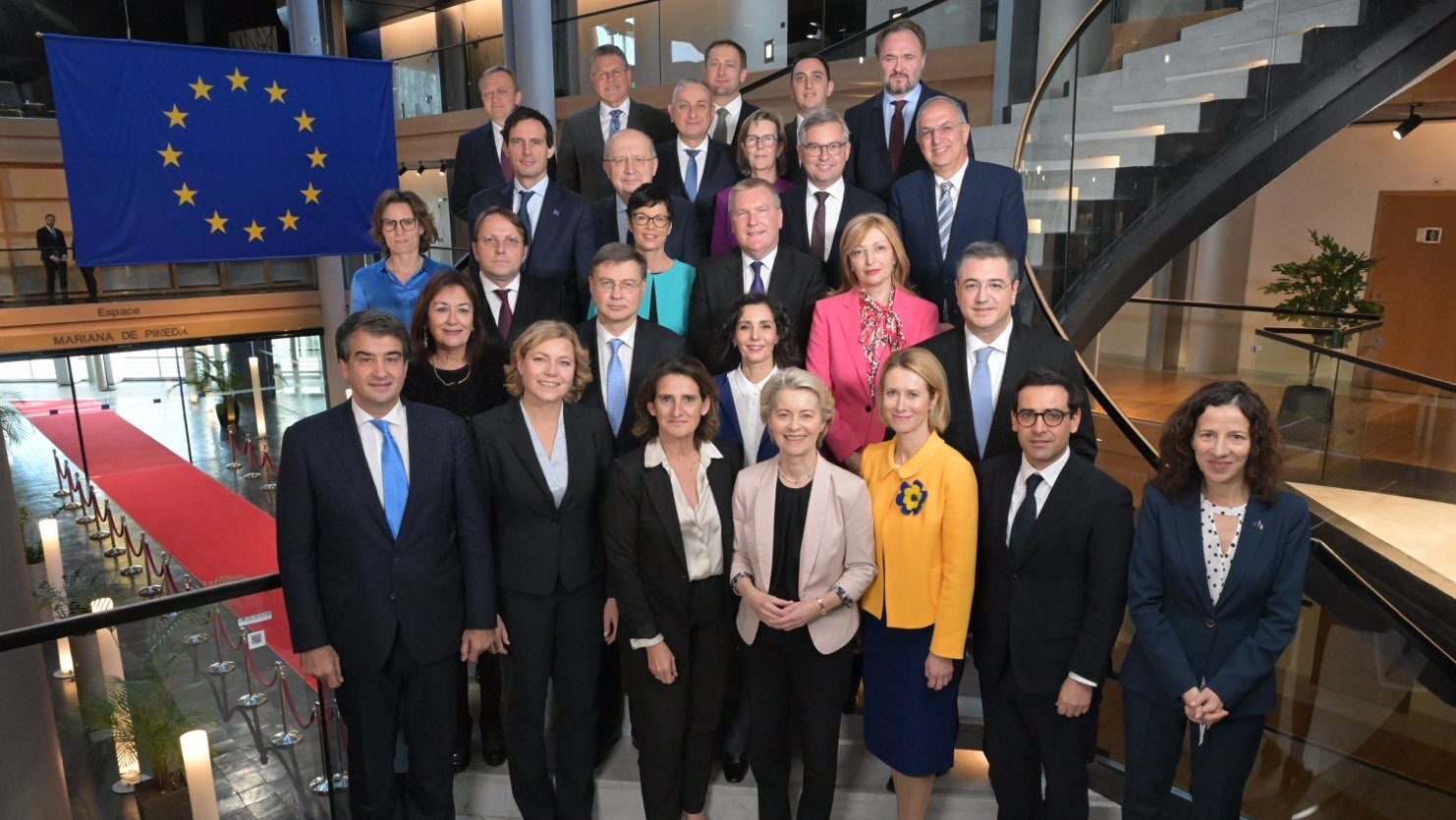On Wednesday the European Parliament approved Ursula von der Leyen’s second Commission with 370 votes in favour, 282 against, and 36 abstentions. After months of political wrangling, von der Leyen’s team is set to begin work on 1 December without any changes to its basic lineup. The commission will take office thanks to a coalition between the European People’s Party (EPP), the Socialists & Democrats (S&D), and Renew Europe. Notably, this commission received the least support of any European Commission since 1993, when the European Parliament gained the power to approve the Commission. Patriots for Europe (PfE), co-founded by Hungarian Prime Minister Viktor Orbán, unanimously voted against the new commission.
‘This path will lead Europe straight into decline, so don’t count on us to go along for the ride. The Patriots group will be voting unanimously against this new European Commission,’ Jordan Bardella, former chairman of PfE, stated in Strasbourg.
Patriots for Europe on X (formerly Twitter): “🗣️ | @J_Bardella 🇫🇷: “This path will lead Europe straight into decline so don’t count on us to go along for the ride. The Patriots group will be voting unanimously against this new European Commission.” pic.twitter.com/XXrtuZrWuH / X”
🗣️ | @J_Bardella 🇫🇷: “This path will lead Europe straight into decline so don’t count on us to go along for the ride. The Patriots group will be voting unanimously against this new European Commission.” pic.twitter.com/XXrtuZrWuH
Fidesz MEP and Vice-Chair of PfE Kinga Gál criticized the pact between the EPP, S&D, and Renew, stating that its sole aim is to preserve the status quo in the European Parliament and continue the failed policies of the past, including those on migration, the green transition, and centralization. ‘They ignore the will of the voters who called for change in the European elections,’ Gál emphasized.
Kinga Gál on X (formerly Twitter): “The only aim of this agreement between the @EPPGroup, @TheProgressives and @RenewEurope is to maintain the status quo and to continue to push forward the failed policies of the last years on migration, war, the green transition and centralisation. They ignore the will of the… pic.twitter.com/zyKj0Pc0Qs / X”
The only aim of this agreement between the @EPPGroup, @TheProgressives and @RenewEurope is to maintain the status quo and to continue to push forward the failed policies of the last years on migration, war, the green transition and centralisation. They ignore the will of the… pic.twitter.com/zyKj0Pc0Qs
Von der Leyen’s Coalition of Lies and Deceit
In the European Parliament elections in June voters clearly expressed their dissatisfaction with Ursula von der Leyen’s Commission. However, this was not enough to prevent the mainstream progressive parties from preserving the status quo through various coalitions.
Von der Leyen’s nomination sparked outrage among real right-wing forces as political groups that performed particularly well in the elections were excluded from the decision-making process. ‘The @EPP built a coalition of lies and deceit with the Socialists and the Liberals. We cannot and will not support this shameful agreement. This is not what the European people voted for!’ Hungarian Prime Minister Viktor Orbán wrote on X at the time.
This coalition has since extended its influence to the work of the Parliament, denying the PfE—currently the third-largest political group in the European Parliament—the positions of chair and vice-chair on parliamentary committees, disregarding the will of the European electorate.
The instability of this alliance is evident from the unanimous vote against the second von der Leyen Commission by the Left and Europe of Sovereign Nations (ESN), in addition to PfE, as well as significant opposition from the Greens and many members of the European Conservatives and Reformists (ECR). Even within the EPP and S&D, MEPs were not unanimous in their support, with only Renew demonstrating strict party discipline on this matter.
Várhelyi Secures Position
The second von der Leyen Commission will also include Olivér Várhelyi, who will serve as Commissioner for Health and Animal Welfare. Várhelyi’s appointment sparked a significant ideological battle in the European Parliament, with progressive MEPs delaying their support for weeks before ultimately agreeing to his confirmation, albeit with reduced powers.
The Hungarian commissioner previously held the role of Commissioner for Neighbourhood and Enlargement, a tenure marked by controversies that repeatedly placed him at odds with Brussels and the left-leaning majority in the European Parliament. Tensions escalated further with the outbreak of the war in Ukraine, as Várhelyi consistently argued for equal treatment of all candidate countries. He criticized the prioritization of Ukraine’s accession over Western Balkan nations—such as Serbia, Bosnia and Herzegovina, and Albania—which have been waiting for decades to join the European Union, calling it fundamentally unfair.
Related articles:








